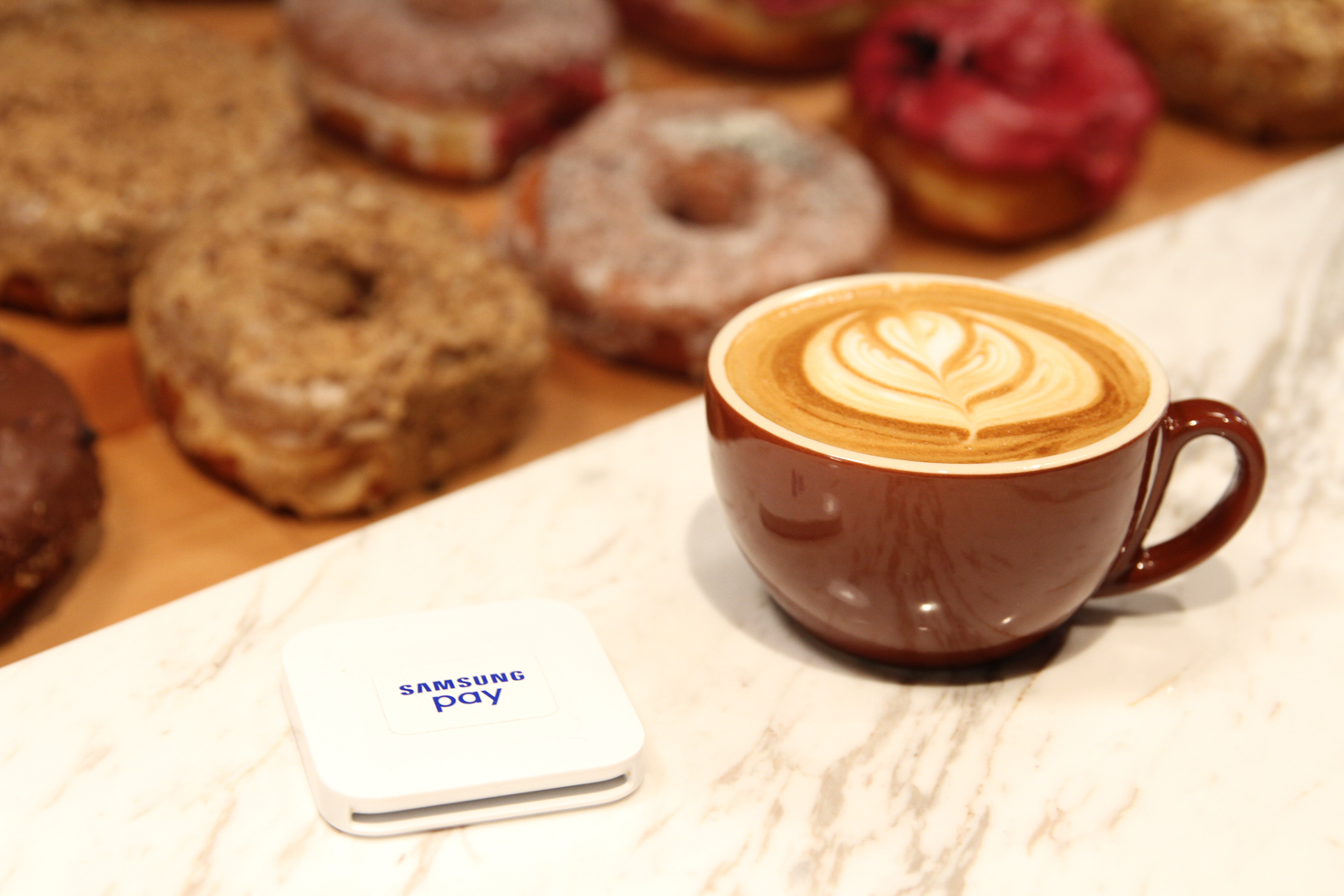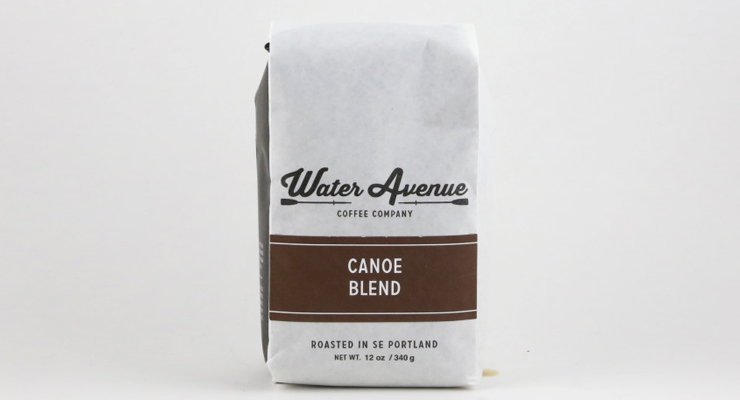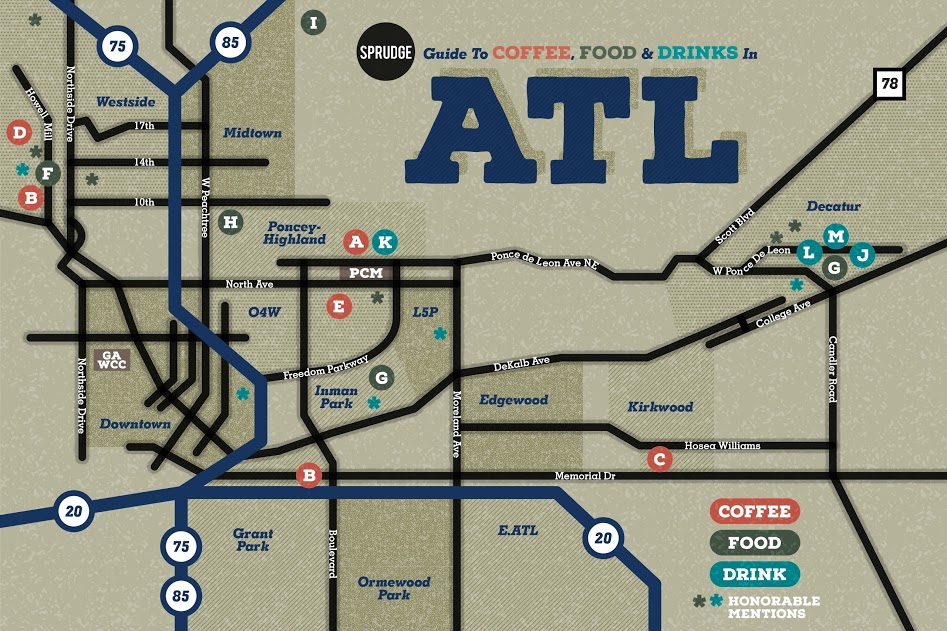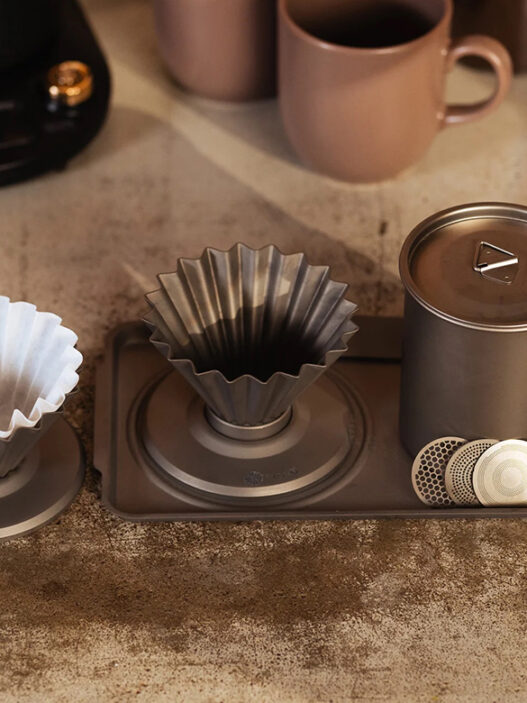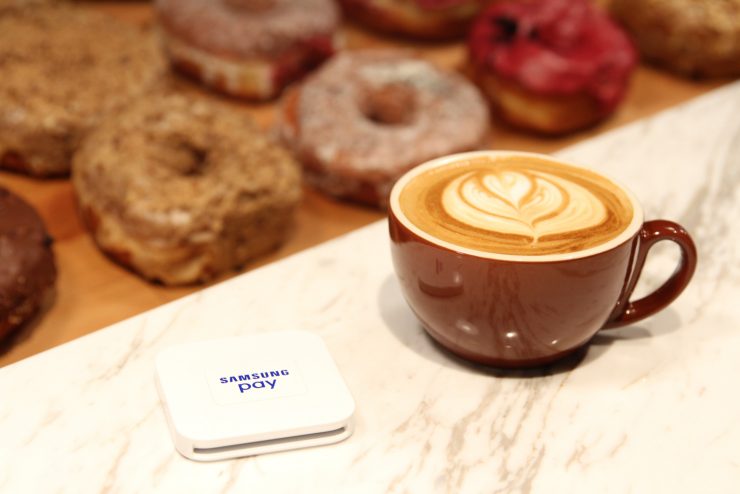
In coffee, solving the business puzzle is an ongoing challenge. When a growing industry confronts the reality that the break-even point on selling four dollar, or higher, cups of coffee can be—shall we say—difficult for everyone involved, what’s the best way to retain quality while staying solvent in a rich person’s rent market like New York City? Many would argue it’s through mixed-vertical businesses, which is why it’s increasingly common to get a cappuccino and a haircut, or a motorcycle, or a surfboard, at the same time in this town.
Last time Sprudge checked in with Stand Coffee, owners Bryan Hasho and Daniel Zettner were making pour-over coffee at a portable bar in the back of a, well, sort of grotty bao shop in the East Village. A year and several pop-ups later, the operation’s gone all digital-world, in the form of a long-term brick-and-mortar coffee bar curated by Smorgasburg and located in the three-story Samsung Experience Store in the city’s Meatpacking District. You heard me.
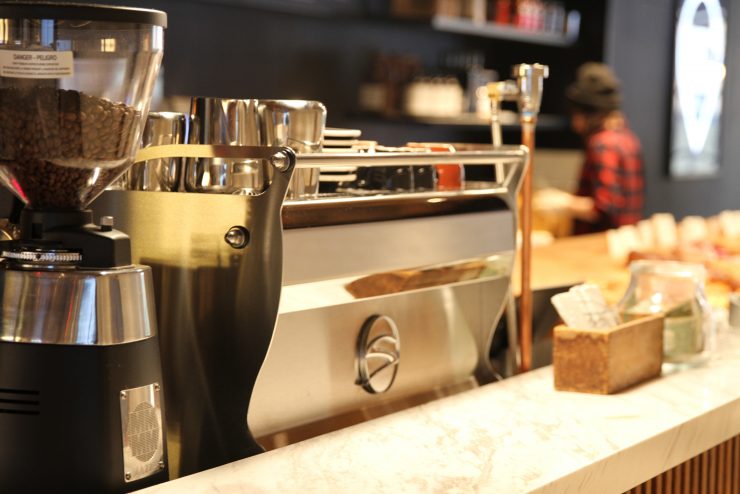
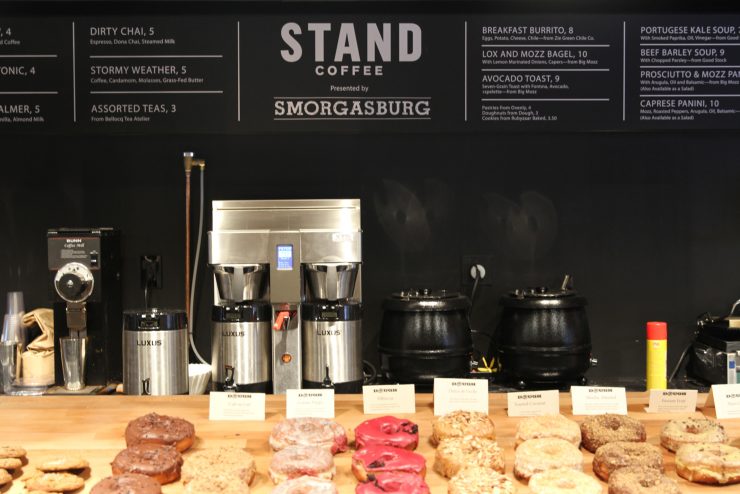
The Samsung Experience Store experience is hard enough to comprehend even without a first-rate coffee shop. The glassy, multilevel complex serves as one part event space, one part “Genius Bar,” and all parts marketing splash. There’s a virtual-reality roller coaster, an Instagram-integrated art installation, stadium seating to watch live or livestreamed musical performances, a ’50s-modern seating lounge, free Wi-Fi, several work-ready tables with chargers, consultants on hand to help you repair (or custom engrave) your Samsung phone, and a test kitchen. It has its own running club. And, on the mezzanine level, a coffee bar with all the trimmings, stocked with multiple artisan roasters and a rotating array of small bites from the Smorgasburg roster. Coffee and food are, incidentally, the only things you can actually buy in the building. This is not your typical coffee shop, that’s for sure.
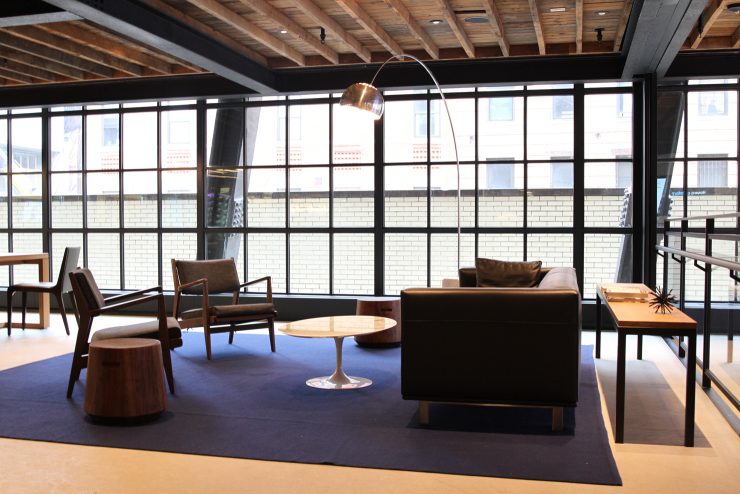
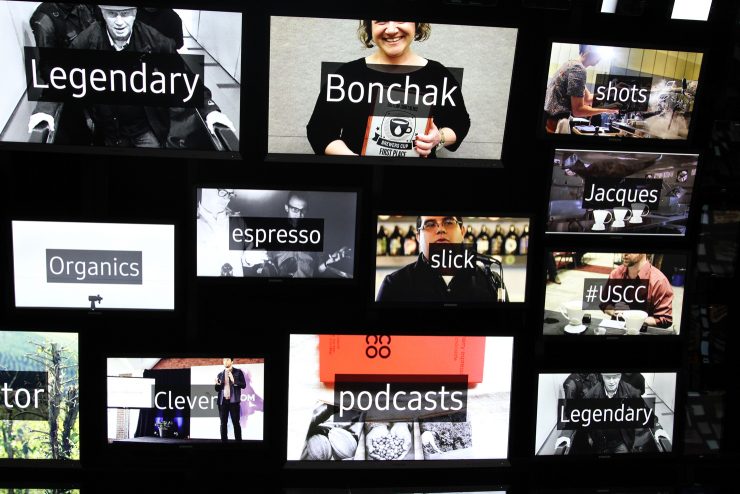
“I think people are going to have to make some compromises on what [they feel] a conventional coffee shop is,” Hasho told me over a cappuccino and breakfast burrito on a rainy spring morning.
“The ‘third place’ is really nice—it is. That works, and that has value, but I think we’re going to hit a point where you’re gonna have to consider whether you value that or the product more,” Hasho continued, crediting mixed-concept spaces with creating opportunities for coffee companies that might otherwise have to compromise on quality and cost.
“In doing what we do, it allows us to offer products and experiment with products that people with their own shops are just not going to be able to do,” explained Hasho. “And the test kitchen is cool because April Bloomfield will just show up and start cooking things.”

For a young coffee company like Stand to go from tearing down a pour-over cart each afternoon and throwing it into a double-parked van on 14th Street straight to pulling shots in a multimillion-dollar space next to the High Line—this is not a thing that happens without huge investment capital or clever partnerships.
“Smorgasburg’s Eric [Demby] came to us with the idea,” Hasho explained. “It’s always been obvious to me that, because of the way the wholesale functionality of a coffee shop works, we could do a pretty great Smorgasburg experience in an environment that allowed for more than one retailer. Samsung came to Smorgasburg, and they came to us, and we’ve been working alongside each other.”
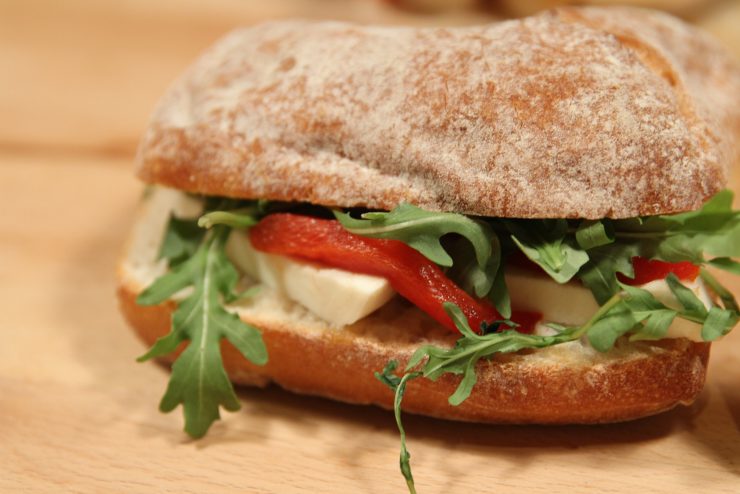
What that partnership looks like—if you can shift your eyes away from the people bouncing along in vibrating chairs and wearing VR goggles for a moment—is this: a sleek, long bar, Synesso Cyncra gleaming atop it next to the full pink-and-gold-sunset spectrum of Dough donuts. Cookies from Rubyzaar (don’t snooze on the chocolate-mint) complete the sweets category, and further down the line one can avail oneself of Zia Green Chile Company breakfast burritos, Big Mozz sandwiches, and other rotating savories. Coffees—offered as filter as well as espresso—come from NYC roasters Lofted, Café Grumpy, and Café Integral, and can also be enjoyed in espresso tonic, cold brew, and Arnold Palmer form. Should you also need to pick up some small-batch olive oil, salsas, or Brooklyn-crafted chocolate—rest assured, this is a Smorgasburg outpost, and you will not be left wanting.
But for a couple of guys so recently pouring coffee at art fairs and handing out hand-screened T-shirts, is the move a sellout?
“No,” says Hasho. He pauses. “Well, that’s for other people to judge. For me, selling out is about changing your product and what you do, not where you do it. They haven’t asked us to compromise at all,” says Hasho of the Smorgasburg/Samsung agreement. Beyond maintaining their standards of coffee quality, Hasho is quick to point out that Stand’s business model—in which every barista splits 5 percent of sales on every shift—remains unaltered as well.
“In the same way that we don’t really pay rent and we like incentives to be aligned with our landlords, by the same token, we like those incentives to be aligned with our staff, so our staff’s happy when it’s busy,” Hasho said.
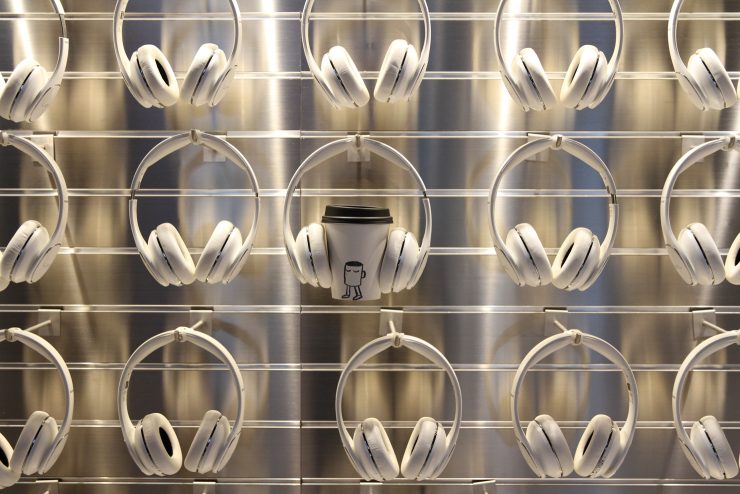
Besides the Samsung space, Stand has continued its pop-up circuit (including slinging coffee for Good Morning America concerts at Summerstage) and has also been operating daytime coffee service inside Williamsburg’s Black Tree restaurant. “We love it [there] for some of the same reasons we love it here,” says Hasho. “We have a partner there who helps us with a menu that is frankly better than a coffee shop can do on its own.”
So for now, whether you’re brunching in Williamsburg, watching live music in Central Park, or getting your name engraved on a smartphone in the Meatpacking District, you can trust that someone at Stand is looking out for your diversified, cross-cultural coffee experience to be truly superlative.










